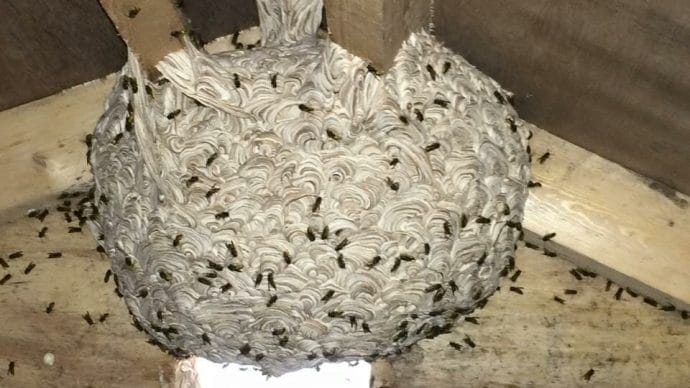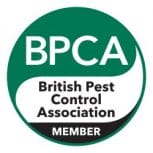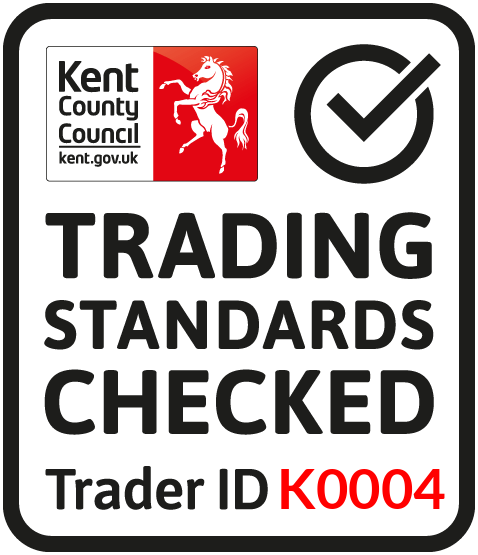Your Local Wasp Nest Removal Technicians
Wasps are incredibly dangerous creatures, especially when they feel threatened. Swarms will attack anyone who approaches, resulting in the risk of serious injuries.
Once they've decided to make your home their own, it can be extremely challenging to remove the infestation successfully as they often nest in hard to reach places. If you've noticed signs of wasps in or around your property then it's time to call in the professionals.
Here at Pest-Tech we carry out wasp nest removals across Maidstone and the surrounding areas of Kent. We've conducted hundreds of wasp control services, using our expertise and years of experience to keep your homes wasp-free.
So, call us on 01622 296055 or contact us to organise your survey today.
Expert Wasp Removal Services in Kent
Attempting to remove a wasp nest or infestation yourself can be extremely dangerous as wasps will attack anyone approaching the hive. In addition, wasp stings are very painful and, in severe cases, can lead to an anaphylactic shock that will require emergency medical attention.
We strongly recommend avoiding DIY attempts and leaving it up to the pest control professionals you can trust. Our fully qualified technicians have the expertise, experience and necessary equipment to remove a wasp nest from your home quickly and successfully. The Pest-Tech team members offer local wasp nest removal across the town of Maidstone and surrounding areas of Kent, including areas such as Ashford, Medway, Sevenoaks, and Tonbridge.
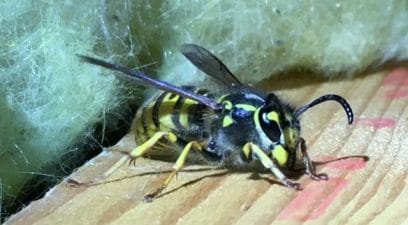
Signs you have a Wasp Infestation
Typically, in our experience, customers dealing with a wasp nest in their home certainly know about it. Of all the pests we deal with, wasps are one of the easiest to identify. Here are our three telltale signs of a wasp infestation for you to look out for:
Swarms
It’s not uncommon to notice wasps around your property, particularly during summer. However, you’ll definitely notice an increase in the number of wasps you’re seeing if you’re unfortunate enough to have a swarm nesting in your home.
Wasps tend to leave their nests regularly, sometimes up to ten times a day, travelling back and forth collecting food for the queen and their young. They also seem to follow similar flight paths each time, meaning you’ll likely see a large number of wasps that look like they’re either approaching or flying away from your home.
Paying particular attention to the direction wasps fly can also assist you in identifying the location of the nest – but please do so from a distance.
Buzzing
The most distinctive and disruptive sign of a wasp nest on your property is the constant buzzing noise that wasps make. While building their nest and coming and going every day, they create a distinct buzzing sound that indicates their presence.
If you’re hearing a continuous buzzing sound but rarely seeing wasps, then it’s highly likely that the nest is somewhere in your home – most probably in a hard to reach area or somewhere secluded like your loft. The sound may be more prominent during the early morning hours and may, unfortunately, disrupt the sleeping habits of yourself and your loved ones.
Structures
The term structures here refers to the physical wasp nests you may be able to see in your home or on your property. The nests may be challenging to find, as wasps are clever about where they choose to build their homes. Hard to reach areas like the wall space or the loft are most common.
Wasp nests typically are a grey or brown colour, with a paper-like appearance – imagine a balloon or rugby ball made from paper. The nest will be textured and covered in a swirly pattern.
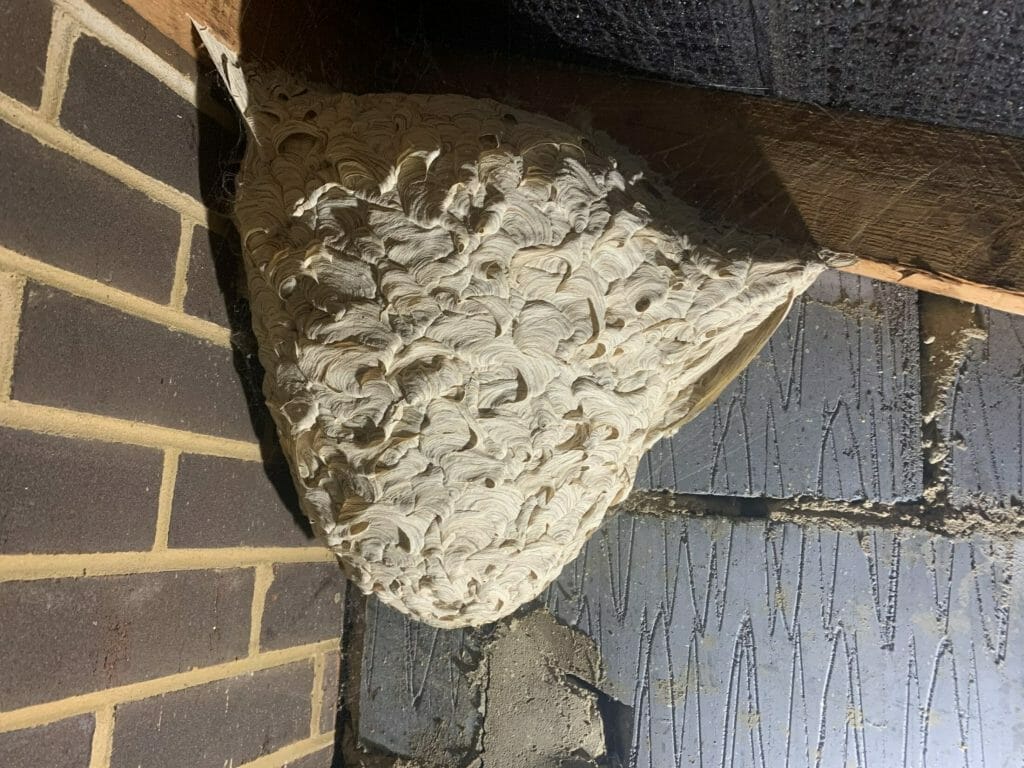
If you identify a wasp nest in your home, please do not attempt to remove it yourself. Instead, give us a call on 01622 296055 and book your guaranteed wasp nest removal today.
Wasps
Understanding the pest causing you problems can be beneficial when identifying their presence before carrying out wasp removal, so let’s take a closer look at wasps and their behaviour.
Wasp Behaviour
While you might see them year-round, the most active period of the year for wasps is typically late summer to early autumn. Wasps are usually most active when their food supply is running low. Wasps will leave the nest in the hunt for sugary foods to return to their young and the queen.
Unlike bees, who will only attack once threatened, wasps can be incredibly vicious, attacking anyone in their vicinity should they choose to. Their stings are highly painful and can cause severe allergic reactions in some people, which is why you should always keep your distance from a hive. Thankfully, Pest-Tech offers wasp control and bee removal services to deal with either pests.
Wasp Nests
Did you know that wasp nests are only ever used for one year maximum? This is because the queen wasp will build the nest from scratch each year, choosing a new location each time. The nest is then only used for a maximum of a year until it is left to lay dormant, never to be used again.
Although wasps are dangerous pests, you can’t help but admire their skill when it comes to constructing a nest. When the queen emerges from her winter hibernation, she begins by laying eggs in order to start building her colony of workers.
Nests begin at just the size of a golf ball before growing in size over the summer months, depending upon the size of the colony. The worker wasps carefully construct the nest using chewed wood as the primary material.
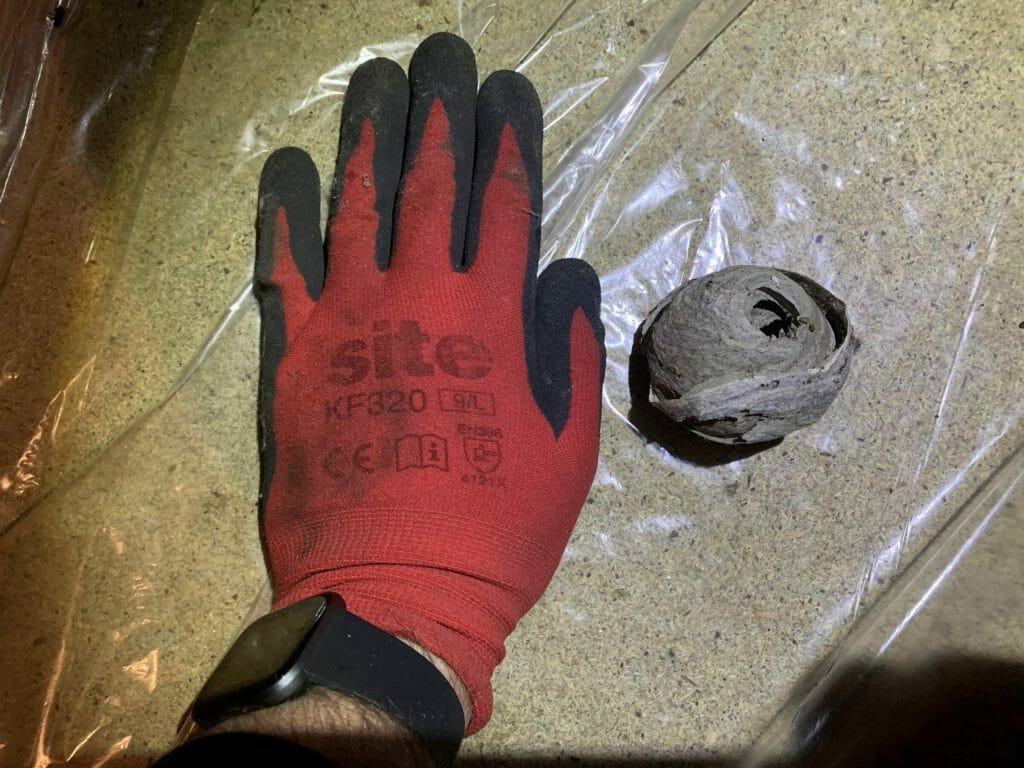
Each nest is essentially its own unique community, and the queen’s temperament ultimately determines the viciousness of the wasps inside. Using pheromones, the queen determines the overall mood of the group. This is also how the queen signals that the hive is in danger, releasing potent pheromones to signal an attack and causing the wasps inside to swarm. This is what usually happens during our wasp nest removal process, as seen in the video below from a recent wasp nest removal job in West Malling.
Hornets
Hornets and wasps are often confused as they’re incredibly similar in terms of both appearance and behaviour. However, understanding the difference between the two types of pests can help when it comes to successfully removing them from your property.
Hornets vs Wasps
Hornets are actually classed as wasps, so it’s easy to see why many people get the two confused. However, hornets are usually bigger than your average wasp, with an added inch or more in length than wasps. Also, a hornet’s colouring is redder in appearance, as opposed to the yellow and orange colours of a wasp.
Surprisingly, they are more vicious than wasps and will attack any insect to survive. Even though they’re classed as wasps, hornets will attack wasps nests and kill the adult wasps in order to get to the wasp larvae. The larvae are then taken back to the hornet nest as a source of food for their young.
Hornets have also been known to attack honey bee hives for the same reason. However, honey bees can survive at higher temperatures than hornets can. When under attack, the honey bees will swarm at the attacking hornets before raising their body temperature to kill off the hornets. We discuss the difference between hornets, wasps and bees in our guide: What’s The Difference Between Bees And Wasps?
Hornet Behaviour
Many people tend to be more afraid of hornets than wasps, which is understandable due to their increased size. As a result, many believe hornets to be more aggressive than wasps. However, in our experience, we haven’t found this to be necessarily true.
Like wasps, hornets will attack anyone who appears to be threatening their nest, but they seem to be more controlled. Hornets’ nests are large in size in order to accommodate their larger length; however, hornets’ nests rarely contain as many hornets as wasp nests contain wasps.
If you’re unsure whether it’s wasps or hornets causing you trouble, get in contact with us today at admin@pest-tech.org or call directly to speak to a member of our team on 01622 296055.
Commercial Wasp Nest Removal Services
It’s not just homes that struggle with wasp nests! Businesses across Maidstone are often plagued with wasp infestations, particularly during the summer months. Unfortunately, wasps can severely impact your business, scaring customers away and ruining your brand’s reputation, negatively affecting your potential profits.
If you run a business in Maidstone or the surrounding areas of Kent and discover signs of wasps on your commercial property, then it’s time to call in the professionals for expert wasp nest treatment. Please don’t risk the health and safety of your staff and customers by letting the issue continue unresolved.
Here at Pest-Tech, we’re proud to have helped numerous businesses across Kent remain open safely after using our expert wasp nest removal services. In addition, we’ve assisted customers from various industries, including hospitality, retail, and agriculture, to remain wasp-free.
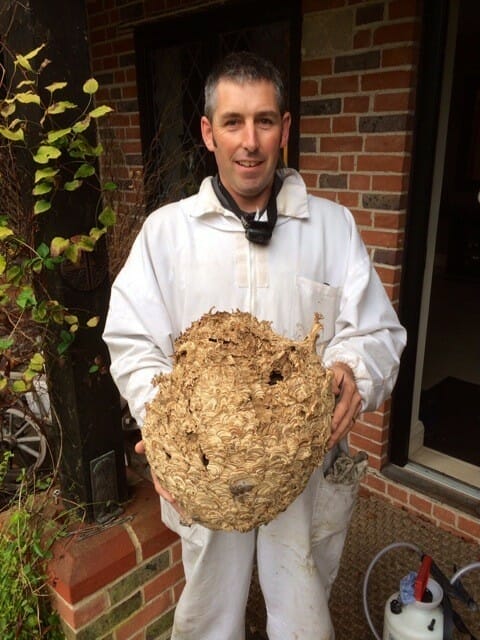
Discreet treatments are also available to protect your brand’s reputation, so contact us to organise your commercial wasp nest removal and book a survey today.
Local Wasp Nest Removals Near You
Are you looking for wasp nest removal services in Kent? Discover the complete list of the areas we cover now, or speak to one of our fantastic team members about wasp nest treatment on 01622 296055. Discover how to get rid of a wasp nest, the life cycle of a wasp, wasp nest removal costs and ways to prevent a colony from moving in by booking your wasp control treatment with a local technician.
The Pest-Tech team have successfully carried out numerous wasp nest removals in Maidstone, so you can have faith in our services, knowing your home will be wasp-free in no time at all. Plus, all wasp control treatments are guaranteed; if there is any wasp activity on your property after 48 hours following the treatment, we will return to your home and re-treat the issue free of charge.
Our highly recommended, expert wasp nest removal services are available across Maidstone and the surrounding areas of Kent for both domestic and commercial properties.
Commonly Seen Pests in the Home and Workplace
Rats
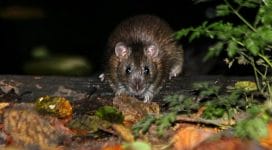
What you need to know about Rats
Mice
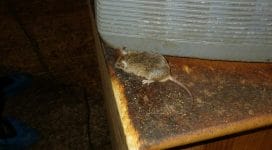
What you need to know about Mice
Flea Control
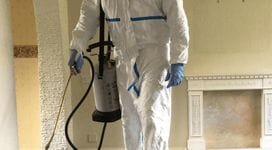
What you need to know about Flea Control
Bed Bugs
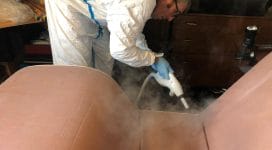
What you need to know about Bed Bugs
Squirrels
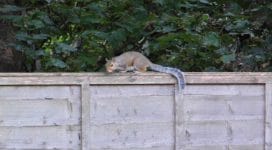
What you need to know about Squirrels
Ant Control
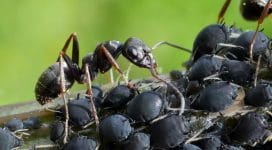
What you need to know about Ant Control
Carpet Moths
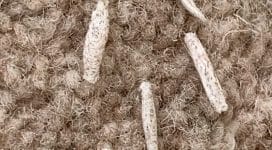
What you need to know about Carpet Moths
Moles
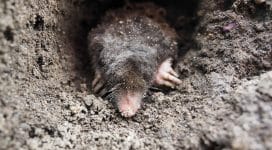
What you need to know about Moles
Bees
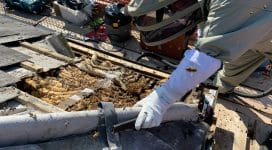
What you need to know about Bees
Pigeon Control
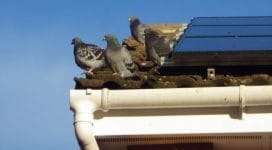
What you need to know about Pigeon Control
Cockroach Control
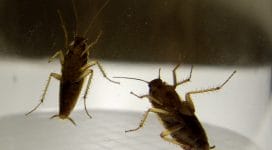
What you need to know about Cockroach Control
